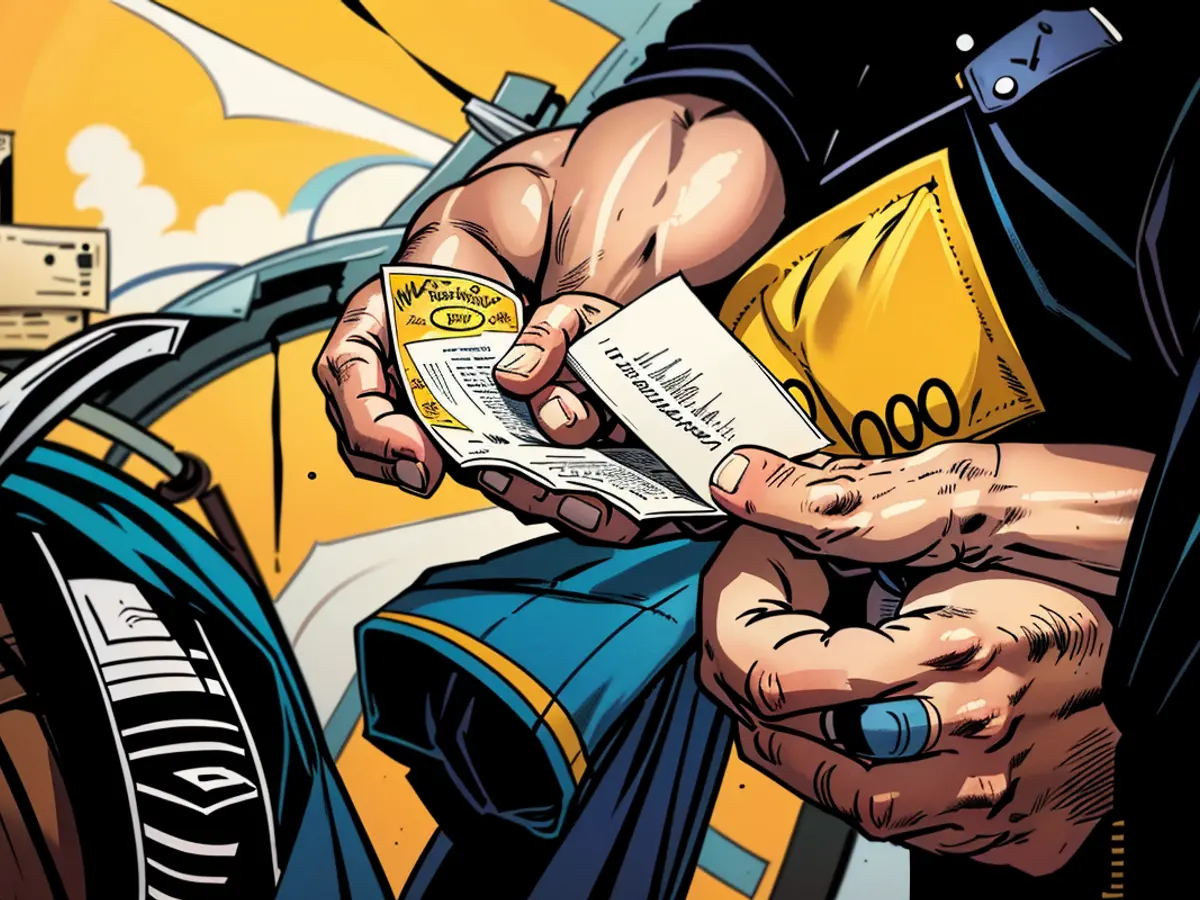Heavy crisis demands much from Argentinians
Argentine President Milei imposes harsh measures - and the country experiences its worst economic crisis in decades. This brings immense hardships for the people. But what can they do?
Nothing inventive from Alejandra, a street vendor, had long observed how crowds of people in Buenos Aires' inner city gathered for anti-government protests in the past few months. Where could these people go when their savings ran out? Perhaps to one of the cafes - but to use the toilet there, one had to buy something, at exorbitant cost. And so Alejandra started her own small business, with little more than a tent and a bucket.
Her business catering to an urgent need grew, parallel to the angry Argentinians' demonstrations and inflation. Her price for using the improvised quiet corner was whatever a customer offered. "I haven't had a job for a year now, this is my only source of income," says the Argentine woman, who only wants to reveal her first name. Every five or six customers, she puts on gloves and empties the bucket into the trash.
The negligence of the political establishment in the many years of crisis in the country explains the wave of public anger that catapulted the libertarian President Javier Milei, who declared himself an "Anarcho-Capitalist," into the presidency. But it also explains the emergence of an unusual society, shaped by resilience, ingenuity, and pragmatism - perhaps more than ever, as Argentina faces its worst economic crisis since its catastrophic foreign debt default in 2001.
"It's the famous Argentine resilience," says Gustavo Gonzalez, a sociologist at the University of Buenos Aires. "It's the result of more than three generations who had to fight against adverse circumstances, great uncertainty, and abrupt changes."
Widespread poverty
The liberal President had warned that things would get worse before they got better. To reverse decades of reckless spending that caused Argentina's debt crisis, Milei lifted hundreds of price controls. He drastically cut subsidies for electricity, fuel, and transportation, causing prices to skyrocket - in a country that already had one of the highest inflation rates in the world.
Milei also dismissed over 70,000 public employees, slashed pension benefits by 30 percent, and froze infrastructure projects, plunging Argentina deeper into recession. Sales in supermarkets fell by ten percent in June. The International Monetary Fund lowered its growth forecast for Argentina in 2024 to a contraction of 3.5 percent.
Shockingly, 57 percent of the 47 million inhabitants of the country are now affected by poverty, and inflation stands at over 270 percent annually. "Argentina is at a turning point," Milei said in his Independence Day speech on July 9. "Breaking points in a nation's history are not moments of peace and tranquility, but moments of difficulty and conflict."
Wealthy Argentinians have reacted by hoarding 100-dollar bills in safes and turning to cryptocurrency Bitcoin to avoid the depreciating peso. Middle-class families, whose electricity and gas bills rose by 155 percent in June, have given up luxuries they once considered essential. No more dining out, no more travel, no more private schools.
In German: The consumption of meat has reached an all-time low, as reported by the commodities exchange Rosario specializing in agricultural products - and in a country where grilled beef is not only a national dish but also a social ritual.
"Surviving with Soup Kitchens"
The official unemployment rate has increased by two percentage points to 7.7% in the past five months, but this number seems low compared to the reality, according to experts. In fact, Argentina's underground economy accounts for approximately half of the country's Gross Domestic Product. Growing unemployment and poverty have even forced more Argentinians to become informal workers, says Eduardo Donza, a poverty researcher at the Catholic University of Argentina. "Those who don't have a job have to create one."
For the 34-year-old Armando Fernández, a broom has become a tool for survival. Last month, he left his impoverished hometown in the province of Santa Fe and walked hundreds of kilometers to the south in search of work in Buenos Aires. Now, he sweeps city sidewalks in the capital, taking whatever pesos shopkeepers give him.
Milei has also set up axes in the government's anti-poverty programs, leaving the poorest Argentinians without the means that once helped them survive. "Politicians talk a lot, but they do nothing," says Fernández, while he stirs a pot of chicken stew given out by the Solidarity Network - a charitable organization that emerged from one of Argentina's many crises.
"I survive thanks to these soup kitchens," says Fernández. Every evening, for seven days a week, hundreds of people like him stand in line at the place near the Presidential Palace, which the Network has transformed into an outdoor dining room.
Argentina's downward spiral has been visible in the southern suburbs of Buenos Aires for a long time. The streets are unpaved, water pipes do not reach this poor neighborhood where Noelia López lives. On a rooftop, she and her 21-year-old son Patricio run the only laundry in this slum. In the morning, the floor shakes under the rumbling of the washing machines, filled with shirts and blankets for about a dozen neighbors a day. What they started during the Corona pandemic to boost their income has now become their livelihood.
Despite the growing poverty and inflation, reaching over 270% annually, Javier Milei's libertarian policies continue to divide the Argentine population. Despite the government's austerity measures, such as lifted price controls and dismissed public employees, many struggle to make ends meet. A soup kitchen in Buenos Aires serves as a lifeline for individuals like Armando Fernández, who walked hundreds of kilometers in search of work and now survives by sweeping city sidewalks.








